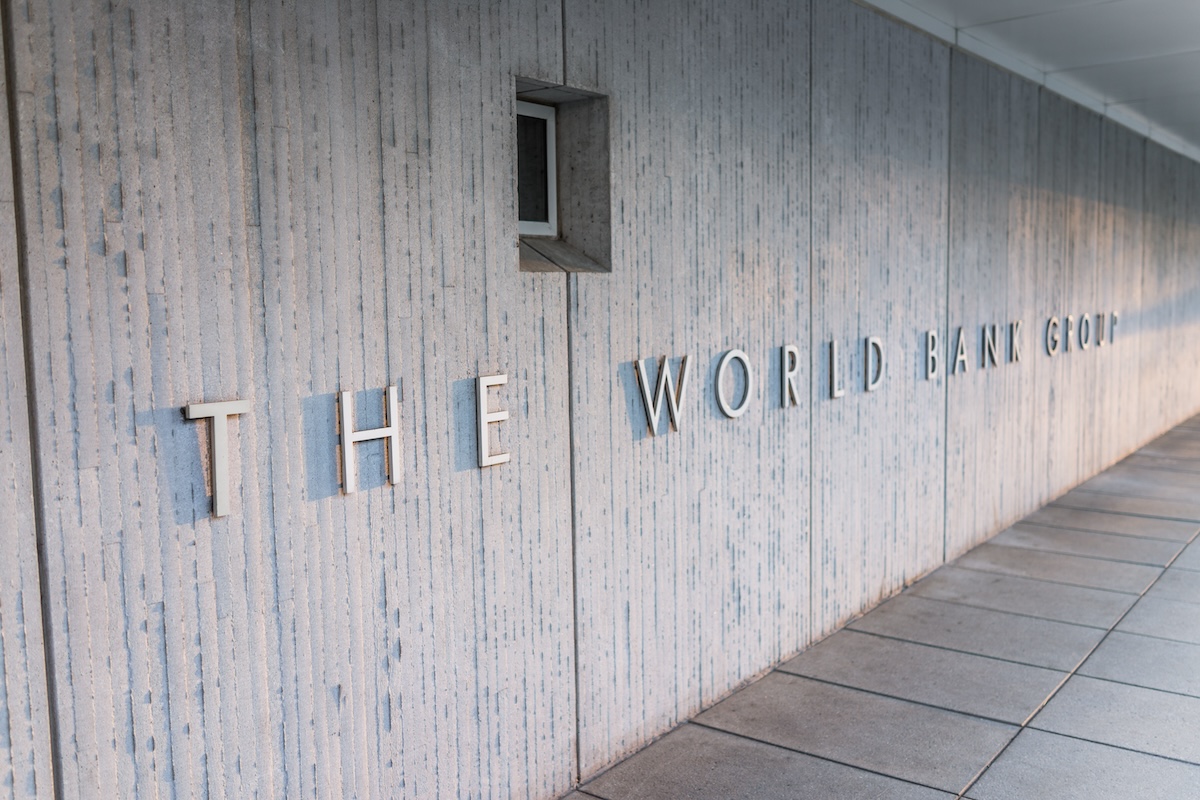-
Report: Multilateral Development Banking for this Century's Development Challenges: Five Recommendations to Shareholders of the Old and New Multilateral Development Banks
-
Podcast: MDBs Perform “Forward Defense of Our Security Interests” – Podcast with Lawrence H Summers
-
Event: Multilateral Development Banking for This Century's Development Challenges
- Working Group: High Level Panel on Future of Multilateral Development Banking: Exploring a New Policy Agenda
Finance and development ministers gathered in Washington this weekend at the World Bank’s annual meetings have an ambitious agenda of topics to discuss. But the truth is, it is not nearly ambitious enough. A new CGD report by a high level commission of development and finance experts explains why and what should happen.
In the coming days, ministers, who serve as the bank's governors, will return to the issue of voting reform, building on the 2010 commitments and getting developing countries as a group closer to 50 percent of “ownership.” They will discuss a new strategy emerging from a year-long “forward look” exercise, which considers resource needs and operations of the institution. They will move toward the conclusion of another replenishment of the International Development Association (IDA), the bank’s lending arm for the poorest countries. And they will consider what more the bank can do to help finance programs for Syrian and other refugees in member countries like Jordan and Lebanon—a challenge that has consumed considerable energy inside the bank in recent months.
But our new report, Multilateral Development Banking for This Century's Development Challenges, urges ministers to rethink priorities of the World Bank in the light of changes in the multilateral system, that now includes more than six other large and politically significant regional banks. The banks as a group need to be better equipped to tackle urgent transnational problems of our time—for example, the risk of antibiotic resistance and forced migration.
Shareholders ought to think of these banks not as individual institutions competing for scarce resources, but as a system of complementary actors. They should build on the key role of the World Bank as the only truly global bank in addressing transnational problems, while looking to the full potential of the regional banks to address their borrowing members’ growing investment needs, particularly but not only in infrastructure.
“A unique moment for the MDBs to embrace ambition”
The year-long assessment of the MDBs by CGD’s High Level Panel on the Future of Multilateral Development Banking, co-chaired by Montek Ahluwalia, Lawrence Summers, and Andres Velasco, lays out a vision for the shareholders of the World Bank and major regional MDBs for the next decade, taking into account the ambitious commitments made by the world’s leaders in 2015: the Paris climate accord and the Sustainable Development Goals. It argues that the MDBs can certainly be part of the solution to today's global challenges.
“We see a unique moment for the MDBs to embrace ambition," the report says. "We strongly believe that the MDB model—combining technical and financial capacity in a politically-backed cooperative—remains the best available vehicle for tackling the critical new challenges facing the global community.”
The report recognizes the fundamental importance of addressing climate change to further progress on development, and the catastrophe that will unfold in the absence of truly global-level collective action in financing and deploying climate-friendly programs in the developing world. To this end, the Panel recommends a new mandate for the World Bank to focus on global public goods, enabled with $10 billion in new grant resources to research and deployment of new energy and health technologies, to foster the nascent “green” bonds market, and to issue loans and guarantees on terms that encourage borrowers to take on the upfront costs of climate mitigation. This would be as a complement to the traditional lending operations of the bank.
Sustainability should be at the heart of what the World Bank does. So, the panel further proposes that the name of the IBRD (the World Bank's main mechanism for lending to middle-income countries) be changed to IBRSD, the International Bank for Reconstruction and Sustainable Development.
Time for the World Bank to set the trend again
Over many decades the World Bank has set the trend, for example, taking leadership on lending to poor countries in the 1960s. Now the panel is calling on it to take leadership on raising grant money, setting priorities for collective action and deploying resources when appropriate to other institutions to address global public goods.
This proposed shift for the World Bank also highlights the need for clearer differentiation between its own role in infrastructure and that of the regional development banks. The World Bank’s role should be to do only what is truly “green.” The report suggests the regional banks take the lead in increasing MDB-supported infrastructure investment from $50 billion to $200 billion a year, with a view to crowding in much more in private capital, as well as sustaining traditional country operations in education, agriculture and other sectors.
The panel offers recommendations in five areas: global public goods, sustainable infrastructure, the role of “concessional” financing, crisis management, and a shareholder-led governance agenda. In each of these areas, CGD’s high level panel recognizes the tremendous potential of the MDBs, as well as the risks and missed opportunities associated with a business-as-usual approach.
We very much hope that the high level panel’s report will spur fresh thinking among the banks’ shareholders about the future roles and mandates of the different MDBs. Ultimately, it is the ministers gathered this weekend in Washington, and in future meetings, who have the power to set a strategic path for the MDB system as a whole. Today’s global challenges demand that they take up the charge.
Disclaimer
CGD blog posts reflect the views of the authors, drawing on prior research and experience in their areas of expertise. CGD is a nonpartisan, independent organization and does not take institutional positions.





